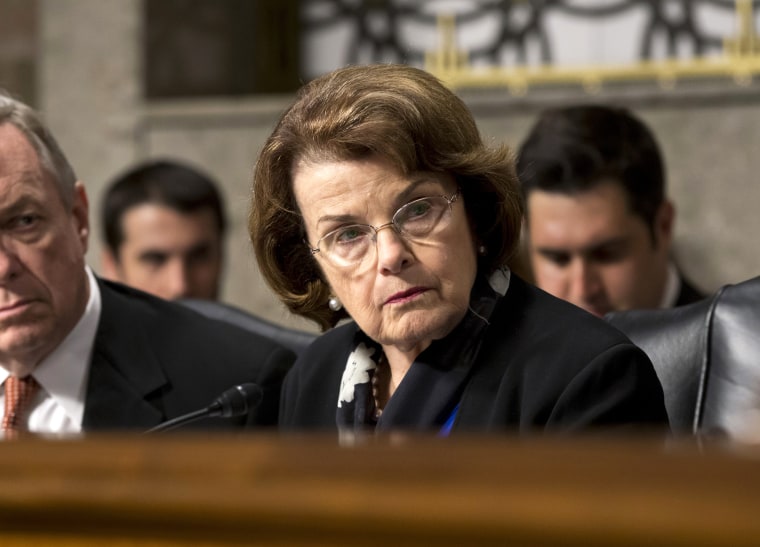If the dispute between Congress and the CIA was simmering last week, it bubbled over this morning.
At issue is a completed Senate investigation into the CIA's interrogation policies, included as part of a lengthy, still-classified report on Bush/Cheney-era abuses. Senate staffers have accused the CIA of spying on them, while the CIA has said Senate staffers were responsible for a security breach, which the agency says it pursued appropriately.
Today, the head of the Senate Intelligence Committee, who hasn't said much about the controversy publicly, addressed the matter in a big way.
Senate Intelligence Committee Chair Dianne Feinstein has accused the CIA of violating the law and the Constitution of the United States by interfering in a committee investigation into Bush-era torture of terror suspects. Feinstein accused the CIA of removing documents provided to the committee through a special, segregated network set up by the agency for the committee to pursue its investigation. Among the documents removed was an internal review of CIA interrogation techniques conducted by then-CIA Director Leon Panetta, which corroborated committee findings critical of the agency's interrogation program. "The CIA just went and searched the committee's computers," Feinstein said on the Senate floor.
And to put it mildly, that's a serious allegation. As Adam Serwer suggested, this is arguably the most contentious -- and most important -- dispute between Congress and the CIA since the activities that led to the Church Committee nearly four decades ago.
At the risk of stating the obvious, Congress has oversight authority over the CIA and other intelligence agencies -- and the authority only goes in one direction.
As Rachel's report on this story explained last week, "This is kind of 'death of the republic' kind of stuff. The whole 'separation of powers' thing almost pales in comparison to the seriousness of the allegation that a nation's own spy services have been turned against its own government, particularly where that government is supposed to be overseeing the spy services."
In terms of the criminal allegations, msnbc's report added that Feinstein believes the CIA's activities "may have violated the Fourth Amendment, the Computer Fraud and Abuse Act, and an executive order barring domestic surveillance conducted by the CIA. Feinstein also said the CIA's activities violated the separation of powers principles in the Constitution by interfering with congressional oversight of the executive branch. Feinstein also said that the CIA Inspector General had referred the matter to the Justice Department. "
The seriousness of the allegations is not lost on other senators. After Feinstein finished speaking on the Senate floor, Senate Judiciary Committee Chairman Pat Leahy (D-Vt.) said that "in 40 years here, it was one of the best speeches I'd ever heard and one of the most important."
Related video:
